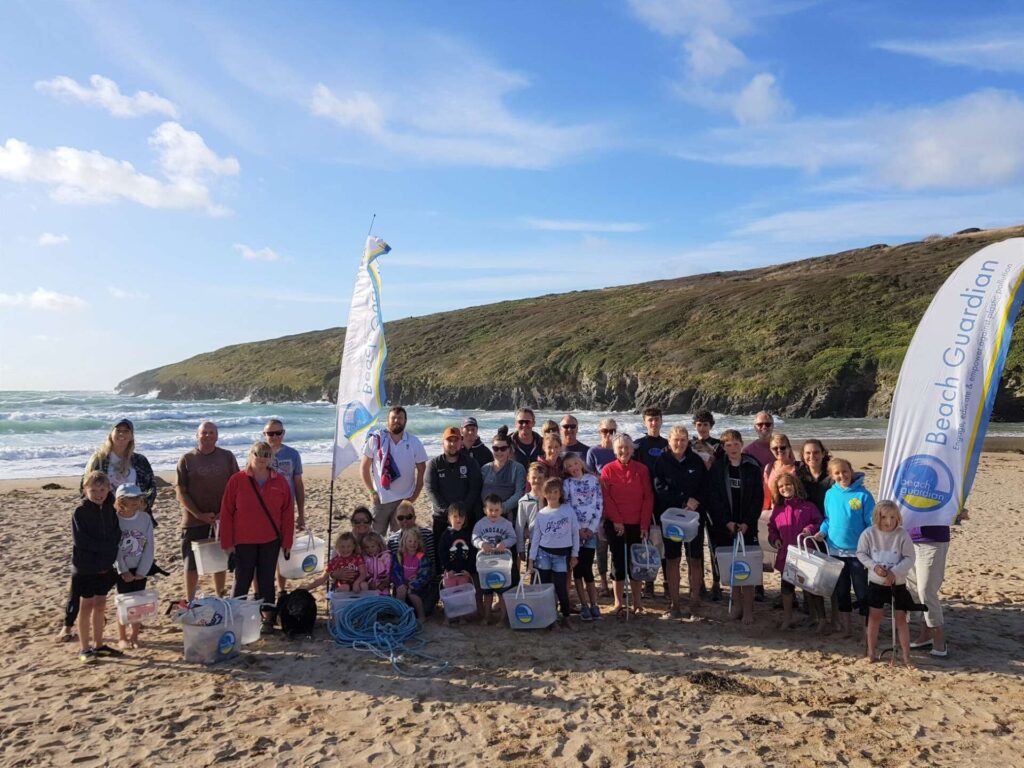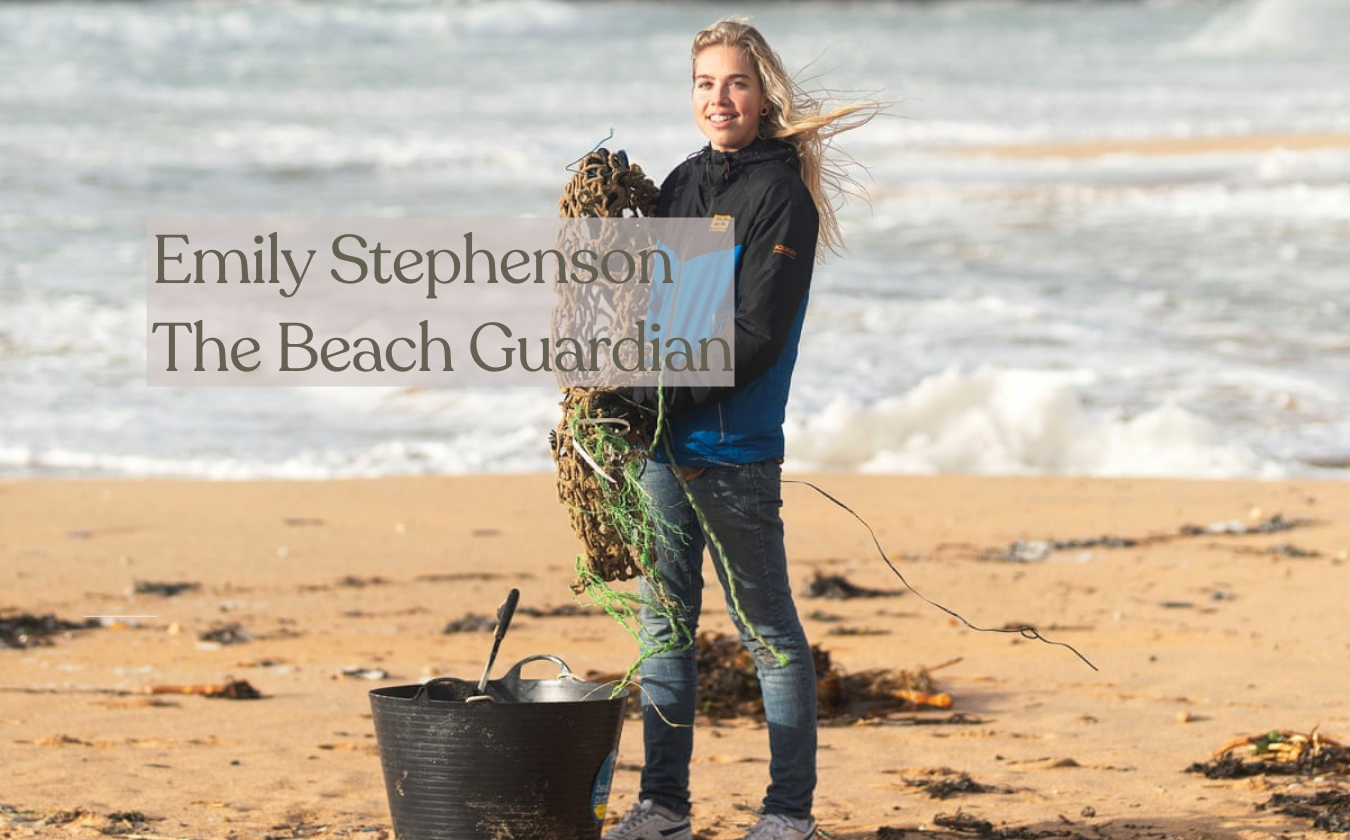Concern over pollution on Cornwall’s beaches has long been a public issue thanks to organisations like Surfers Against Sewage. But it’s only relatively recently that people have begun to notice the dangers of plastics. Marine biologist Emily Stevenson, 24, has done more than most to raise awareness, launching the Beach Guardian movement in 2017 and cleaning up Cornish beaches. We wanted to know more about this inspiring young woman’s mission.
When did you first become aware that there was a problem with plastics on Cornwall’s beaches?
It was 14 years ago, when we moved to Cornwall. I was 10, making sandcastles on Watergate Bay Beach and decorating them with plastic! One of my first school projects in Cornwall was to find some natural items – seaweed or shells – and make something out of it. But I collected the plastics instead and made something out of that. It was interesting to take something that was wasteful and polluting, and turn it into something that everybody seemed to be proud of.
How did your activism begin?
I started a website when I was ten, selling the plastic that I was finding so that other people could make things out of it, and donating the money to the Marine Conservation Society. I decided then I want to be a marine biologist and dedicate my life to tackling plastic waste
How did the Beach Guardian movement come about?
When I finished my degree in 2017, my dad was just coming out of a job he’d been in his whole life. He said, ‘I’m passionate about this too, can we do it together?’ So we started organising beach cleans and the rest is history.
Who takes part in your beach cleans?
If it wasn’t for Cornish people, it would just be me and my dad picking up rubbish. The only reason we’ve been able to grow is because the community wants to be involved. We have a group of 50 regular volunteers who will come over. Then in the summer months, 50% of the people on our beach cleans are tourists. When they join, they learn about the Cornish ethos and how to be empowered as a collective – and they take that back home again
What impact do the beach cleans have?
Going into the environment and removing plastic from it, that’s the backbone of everything we do. But I always see beach cleaning as a gateway drug to becoming an environmentalist. As soon as you’ve done that one thing, it’s like your eyes are open to all the other problems and we see our volunteers changing their behaviour to make less impact on the environment. But we’re tackling social issues as well. We’ve got people who are struggling with their mental health and people with addictions coming to our beach cleans. Once you’re contributing to the community in that way, it’s incredibly healing.
How are you reaching out to younger people?
We’ve engaged with 50,000 children and run workshops from primary and secondary school to university level. I think kids find it really fun. We design our beach cleans to be a treasure hunt. Can you find a shark egg? Can you find the Lego that’s been lost at sea for 24 years? Can you find a crisp packet that’s older than you? It really does get competitive – people are fighting over litter by the end of it!
Do you see wider change coming?
We’re not going to be able to solve this on our own. If we all work together, we’ll do it better and faster. We try to work with any organisation, any business to help them reduce their reliance on unnecessary plastics. We’ve worked with everyone from small businesses to Rick Stein and big corporations like Pepsi, Walkers and Costa, to find ways of doing things better.
What do you love about Cornwall?
For me, the coast is where I feel most at peace. When you’re looking out to sea all the stress of life, work, everything is behind you and you just connect. That equilibrium makes me feel whole and content. And that’s why I love being on the beach so much and why we need to protect it: so everybody has that kind of escape.

